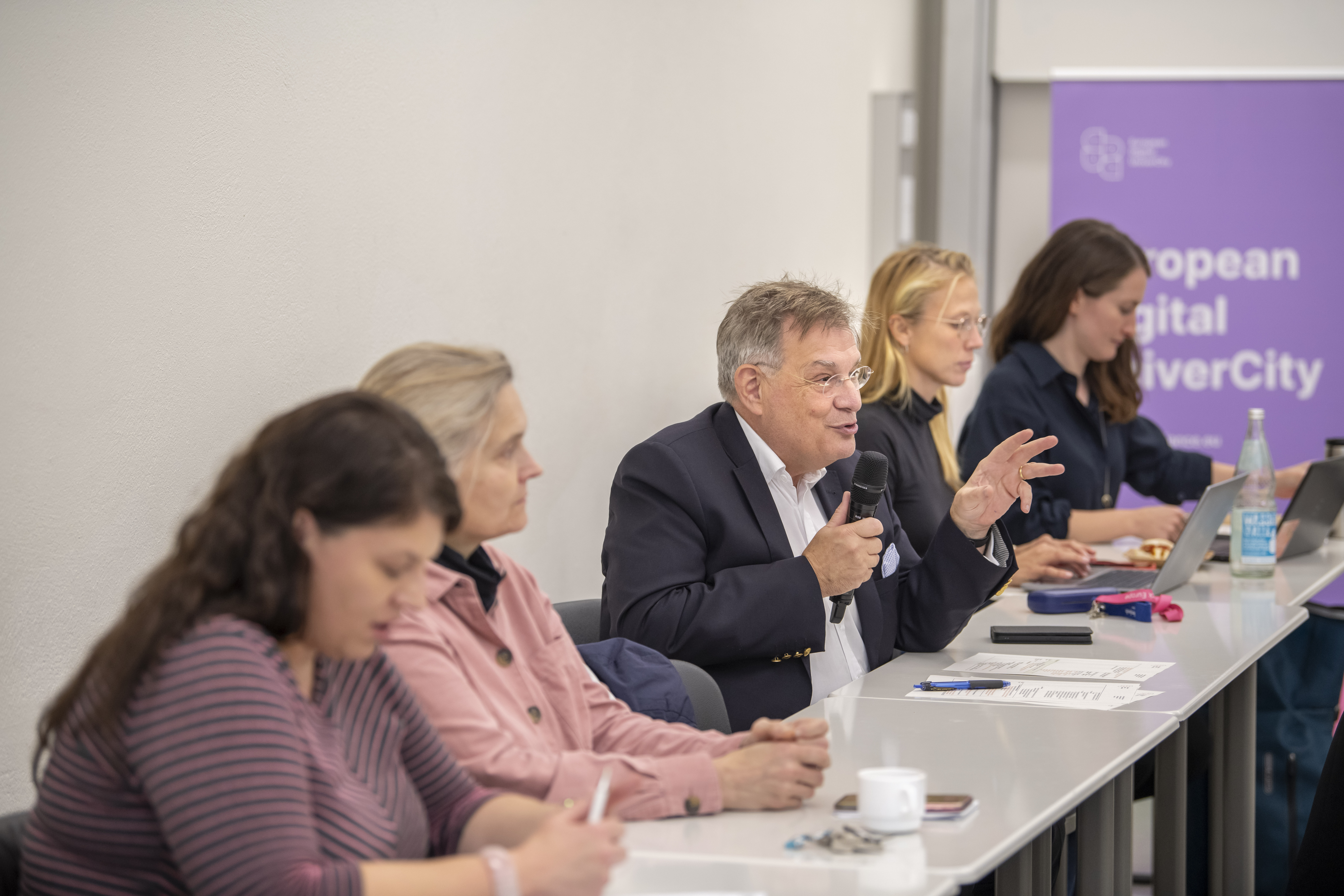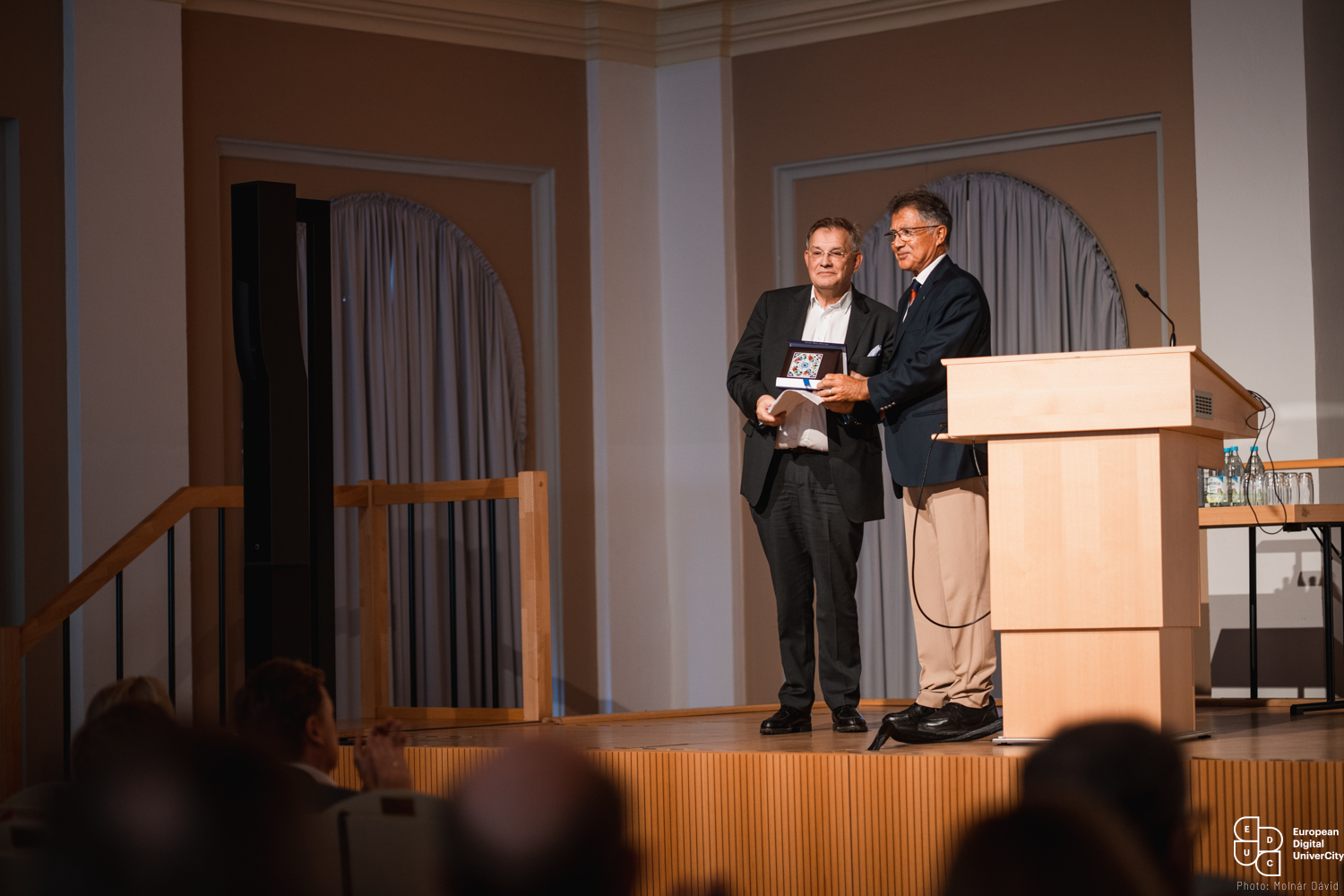
Devoted to Europe
As Vice President Florian Schweigert steps down, he rests assured that the will to deepen and strengthen the alliance day by day is alive and strong. And that the path to seamless academic interaction in freedom and dignity for the benefit of the European idea has never been clearer.

From the beginning of my career, I tried to gain as much international experience as possible during my veterinary studies. At that time, Erasmus did not exist, and you had to organise all your placements or short-term exchanges yourself with very little additional funding.
These experiences have taught me a lot about self-organisation and adapting to a new environment. As a scientist, I had my own international contacts and collaborations. These collaborations opened my eyes to the importance of working across national and mental borders for individuals and institutions.
When I took office eight years ago, I could not have imagined that the most important part of my activities over the last five years would be devoted to Europe. At the beginning, most of the activities in my office were focused on continents other than Europe. With the EDUC Alliance, Europe came to the centre. At a time when we were being distracted by Covid-19, war or autocratic developments in every corner of the world.
Now, after five years, I have a strong feeling that EDUC is beginning to be implemented at all levels in each university and is becoming more and more an integral part of all the universities involved.
I remember discussing in my team that there are new activities related to EDUC in our university about which we had no information. This is not a problem; it is a good sign that EDUC is starting to find its place in the institutions.
EDUC promotes a melting pot of cultures, ideas and perspectives. This integration allows for a rich educational experience where students, faculties and staff from diverse backgrounds can engage, learn from each other and challenge their preconceptions. Such an environment is conducive to promoting tolerance, empathy and understanding across cultural divides.
In addition, the initiative's emphasis on inclusivity ensures that educational opportunities are available to a wider range of students, including those from underrepresented or disadvantaged groups. This approach is now an integral part of EDUC's activities. It not only enriches the educational landscape, but also prepares students to enter a global workforce with a deeper understanding and appreciation of diversity.
EDUC has a significant impact. On the one hand, by promoting international cooperation and mobility, and developing joint programmes and research. These programmes often focus on addressing global challenges, promoting innovation and fostering a sense of European identity among students, faculties and staff. This not only raises educational standards but is also in line with the European Union's wider objectives of promoting unity and cooperation.
On the other hand, as its name suggests, EDUC is dedicated to digital learning and the integration of digital tools in education. This approach not only makes education more accessible and inclusive, but also ensures that European higher education institutions remain competitive in an increasingly digital world.
Finally, it promotes European values such as democracy, human rights and the rule of law.
Many research projects within the EDUC Alliance focus on sustainable development issues, ranging from environmental protection to social equity. This research contributes to the global body of knowledge on sustainability and offers practical solutions to related challenges. All stakeholders also engage with local and international communities on sustainability issues.
EDUC creates an environment where ideas can be freely exchanged and critically examined, irrespective of national or institutional boundaries. This cross-border academic interaction encourages a culture of open inquiry and debate, essential for academic freedom. It allows scholars and students to explore a wide range of perspectives and methodologies, enhancing the robustness and credibility of academic work. Furthermore, the initiative emphasizes the importance of maintaining high ethical standards and integrity in research and education. This instills a sense of responsibility and honesty in future generations of academics.
A good example is the Voltaire Prize for Tolerance, International Understanding and Respect for Differences, which was initiated at the University of Potsdam. This prestigious prize is now seen as representing a European perspective by linking it to EDUC activities.

By creating a network of eight universities in different European countries such as Germany, France, Italy, Hungary, Czech Republic, Spain and Norway, EDUC creates a rich tapestry of cultural and linguistic diversity. Students, faculties and staff benefit from exposure to multiple languages and cultural perspectives, enhancing their language skills and cultural sensitivities. This multicultural environment not only promotes multilingualism as a practical skill, but also fosters an appreciation of linguistic diversity as a key component of global citizenship. In addition, the initiative facilitates international cooperation and research, linking European education with global issues and perspectives. Through these collaborations, the initiative not only strengthens Europe's role in global education, but also highlights the importance of multilingualism in international dialogue and problem-solving.
All of us involved in EDUC can be very proud of what we have achieved so far. Driven by enthusiasm and the highest levels of motivation, we soon realised that bringing together six universities from five nations, and later eight, was not so much a matter of changing the minds of those directly involved, but rather of slowly adapting structural readiness, especially in relation to national and regional frameworks.
You can only move as fast as your environment allows. We were and are all aware of these challenges. But despite the many obstacles, large and small, the will to deepen and strengthen the alliance day by day is alive and strong.
This vitality and strength of all those involved in the creation and implementation of the European Digital UniverCity will be the foundations and cornerstones of a strong and lasting integrated structure within our universities, best described as solid and lasting bonds, enabling seamless academic interaction in freedom and dignity for the benefit of the European idea.